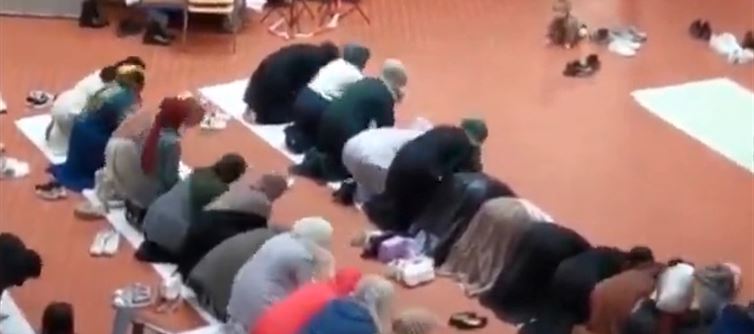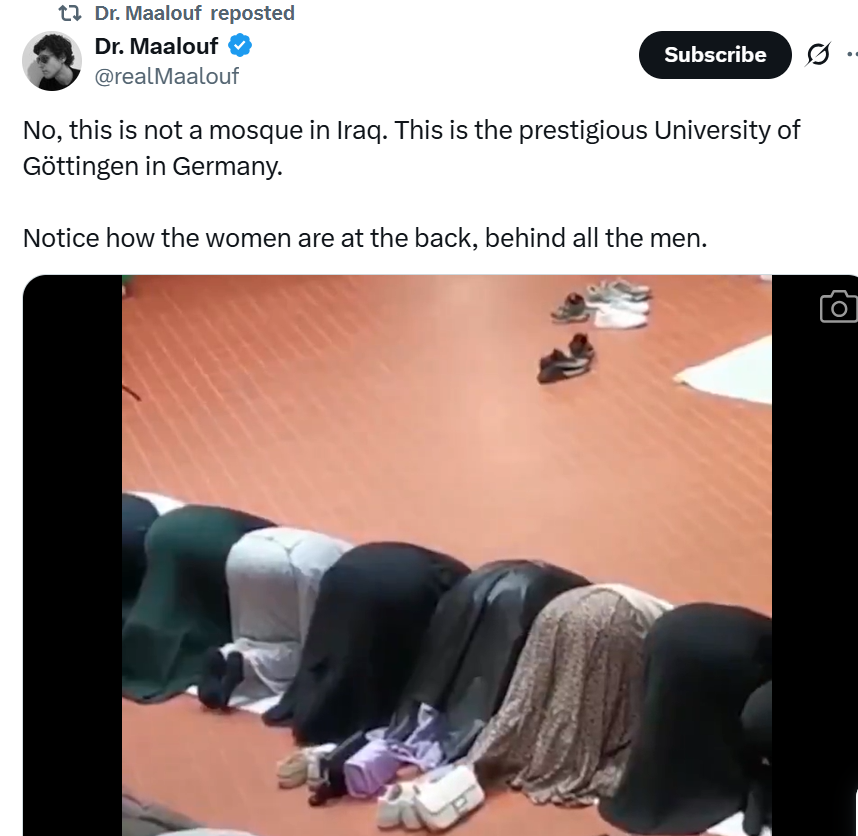
 The imagery—prayer mats aligned, men and women participating in a religious act on university grounds—has become a lightning rod in ongoing debates about secularism, religious expression, and cultural integration in Europe. For many, especially critics of multicultural policy, the scene raises difficult questions about the perceived imbalance in how different religions are treated in public institutions.
The imagery—prayer mats aligned, men and women participating in a religious act on university grounds—has become a lightning rod in ongoing debates about secularism, religious expression, and cultural integration in Europe. For many, especially critics of multicultural policy, the scene raises difficult questions about the perceived imbalance in how different religions are treated in public institutions.One of the most pointed comments online reads: "Progressive Germany: where the state bans Christian symbols in schools but rolls out the red carpet for imported patriarchy. Diversity, right?" This sentiment, while provocative, reflects a growing frustration among some Europeans who feel that secularism is being inconsistently applied.
In countries like germany and France, Christian crosses and nativity scenes have been restricted in schools and public buildings under the principle of maintaining a neutral, secular state. Yet, the visible accommodation of Islamic practices—such as prayer spaces or exemptions for religious attire—can be perceived by critics as a double standard, or worse, an erosion of Western liberal values under the banner of diversity and inclusion.
However, it's important to navigate this controversy with care. Universities are, by nature, places of academic freedom and personal expression, including the right to practice religion. The real issue is not whether students can pray—it’s whether public institutions are applying their policies consistently and fairly across all faiths.
If Christian, Jewish, or secular expressions are being suppressed while Islamic practices are accommodated, then there’s a legitimate debate to be had about balance and fairness. At the same time, sweeping generalizations that label all Islamic practices as “imported patriarchy” ignore the diversity of thought and belief within Muslim communities themselves.
The real challenge for Germany—and much of Europe—is finding a path that respects freedom of belief while defending secular principles and ensuring that no ideology, religious or otherwise, is given preferential treatment at the expense of others.




 click and follow Indiaherald WhatsApp channel
click and follow Indiaherald WhatsApp channel